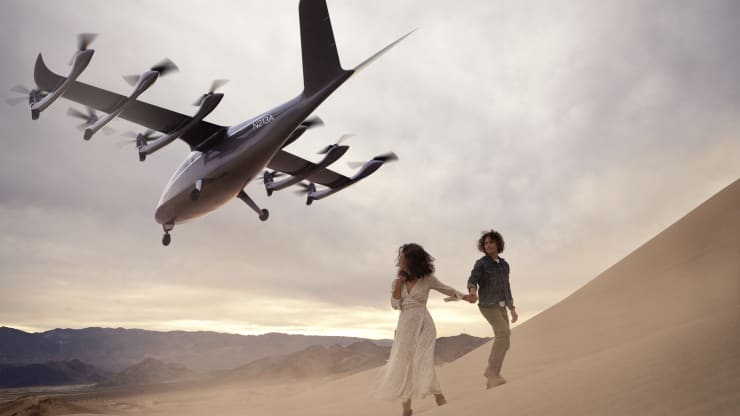The United Airlines eVTOL partnership with Archer is helping to accelerate the future of electric air mobility. Backed by major investors, United is aligning with Archer, a California-based aerospace company developing electric vertical takeoff and landing (eVTOL) aircraft. Archer expects to release its first certified aircraft in 2024, pending approval by the Federal Aviation Administration (FAA).
Archer’s co-founder and co-CEO, Adam Goldstein, expressed enthusiasm about the partnership, stating, “The affiliation with United Airlines gives us a competitive advantage and helps us speed up our timeline.” With major funding and airline support, Archer is positioning itself at the forefront of this emerging transportation sector.
Based in Palo Alto, Archer plans to unveil its full-scale piloted eVTOL aircraft later this year. The aircraft is designed to carry up to four passengers across 60 miles, reaching speeds of up to 150 mph. A major part of Archer’s innovation includes the in-house development of battery packs to power the aircraft—an effort to maintain full control over both performance and sustainability.
To secure funding and increase momentum toward FAA certification, Archer is merging with Atlas Crest Investment Corp in a SPAC deal worth $1.1 billion, bringing its overall valuation to $3.8 billion. United Airlines and Stellantis are two of the largest strategic backers of this venture.
Stellantis, formed by the merger of Fiat Chrysler and PSA Peugeot, will contribute to the development of the aircraft’s lightweight carbon-fiber fuselage. United Airlines, meanwhile, has committed to purchasing 200 of Archer’s aircraft for $1 billion, with an option to acquire 100 more for an additional $500 million.
In the press release announcing the SPAC deal, United Airlines CEO Scott Kirby emphasized the environmental benefits of the partnership. “By partnering with Archer, United is demonstrating to the aviation industry that the time to adapt to cleaner and more effective transportation modes has come,” Kirby said. United estimates that by replacing short-haul car rides—such as the 13-mile trip from Hollywood to LAX—with eVTOL flights, carbon dioxide emissions could be cut by 50%.
Market research by Deloitte supports this vision of growth. According to their projections, the eVTOL market could be worth $4 billion by 2025 and skyrocket to $57 billion by 2035. With around 200 companies currently developing eVTOLs—many focused on cargo transport and others on passenger service—the race to create the first commercially viable electric air taxi is heating up.
Archer’s other co-founder and co-CEO, Brett Adcock, believes that eVTOL aircraft will fundamentally transform how people move through cities. “We plan to disrupt the ride-share market by introducing an affordable, fast, and emission-free alternative,” Adcock said. The company is targeting an entry price of $3 per passenger mile, which is comparable to current rideshare pricing and could revolutionize urban commuting.
Still, questions remain about how United will integrate the Archer eVTOL into its broader network. The airline has not yet confirmed whether the new aircraft will be operated by United pilots or by Mesa Airlines, which already manages United’s regional operations for smaller markets.
As regulatory frameworks evolve and technology matures, partnerships like the one between United Airlines and Archer represent the next frontier in aviation. With electric air taxis poised to change the way we think about urban and regional mobility, the aviation industry may soon experience its most dramatic shift in decades.
Photo Credit: Archer Air

